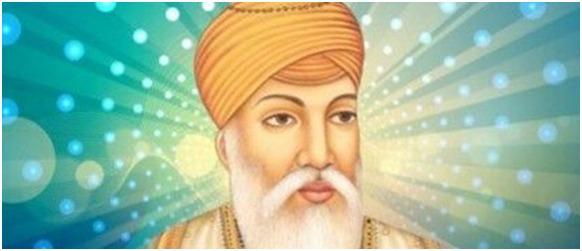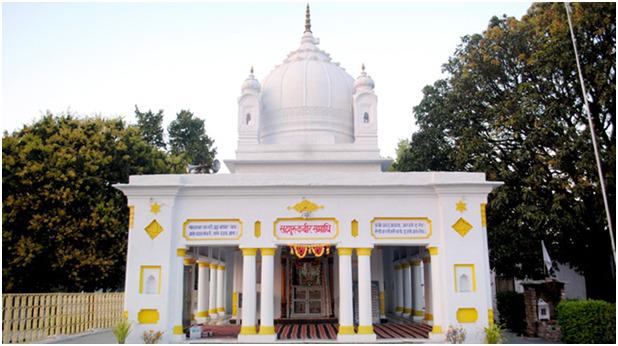Sant Kabir
Sant Kabir the fifteenth-century mystic ranks among the world's greatest poets. In India, he is perhaps the most quoted author, with the exception of Tulsidas. His poetry is filled with profound teachings and deep insights into truth & philosophy. The central teachings of Kabir laid stress on 'Bhakti'. He said that through Bhakti or devotion one would come nearer to God & be released from the cycle of birth and death.

The major theme in Kabir's teaching revolved around the repetition of God's Name while rejecting all superficial rituals.
Sant Kabir was a unique combination of humanism who could not be confined to the realms of one religion. Kabir’s verses that influenced the Bhakti movement of Hinduism are found in Sikhism’s Guru Granth Sahib too. He spent his early life in a Muslim family, but he was strongly influenced by Ramananda, the Hindu Bhakti leader widely known as Kabir’s teacher.
Born in Varanasi, Kabir had his own definition of God. According to him, “true God” is with the person who is on the path of righteousness, considers all creatures as his own, and one who is passively detached from worldly affairs.
Kabir’s principal media of communication were songs called padas and rhymed couplets (dohas) sometimes called “words” (shabdas) or “witnesses” (sakhis).
Being illiterate, Kabir expressed his poems orally in Hindi, using dialects such as Avadhi, Braj, and Bhojpuri, which were spoken in the area. His Hindi was straightforward, as were his philosophies. A major part of Kabir’s work was collected by Guru Arjan Dev, the fifth Sikh guru, who incorporated them into the Sikh scripture, Guru Granth Sahib.
Some of the great writings of the Kabir Das are Bijak, Kabir Granthawali, Anurag Sagar, Sakhi Granth etc.
Kabir died in 1518 A.D. Legends speak that both Hindus and Muslims quarreled over his dead body. But when the shroud was removed from over his body, there were only a bunch of flowers instead of his corpse. The assembled people were taken aback by this miracle. Hindus collected some flowers and cremated them while the Muslims took the remaining flowers for burial at Maghar in Uttar Pradesh.

Sant Kabir’s Burial Place
His ideology helped shape the Kabir Panth, a sect found across northern and central India that draws its members especially, but not exclusively, from the Dalits. The Kabir Panth regards Kabir as its principal guru or even as a divinity truth incarnate. The broad range of traditions on which Kabir has had an impact is testimony to his authority on Hinduism, Islam & Sikhism. The basic religious principles he espouses are simple. According to Kabir, all life is an interplay of two spiritual principles. One is the individual soul/Jivatma and the other is God/Paramatma. Kabir believed that salvation is the process of bringing into union these two divine principles.
The social and practical manifestation of Kabir's philosophy have continued through the ages. It represented a synthesis of Hindu, and Muslim concepts. From Hinduism the concept of reincarnation and the law of Karma and Islam the affirmation of the single god and the rejection of idol worship.
Sayeen Itna Deejiye, Ja Mein Kutumb Samaye Main Bhi Bhookha Na Rahun, Sadhu Na Bhookha Jaye!
English translation:
God, give me so much wealth, that my community is fed I don't remain hungry, the Sadhu does not go hungry. Kabir asks God for wealth and abundance. He asks that his community is fed, he does not starve and the visiting Sadhu does not go hungry.
Kabir's critique of the state, in his utopia of Begumpura, of an ideal village polity without any private property, taxation, and injustice, revenue & administration is a hint of his political ideas & his secularism premised on monotheism and syncretism.
Kabir's teaching is in perfect harmony with the social and religious needs of the present times & will remain relevant to achieve an integrated India.
Comments (1)
